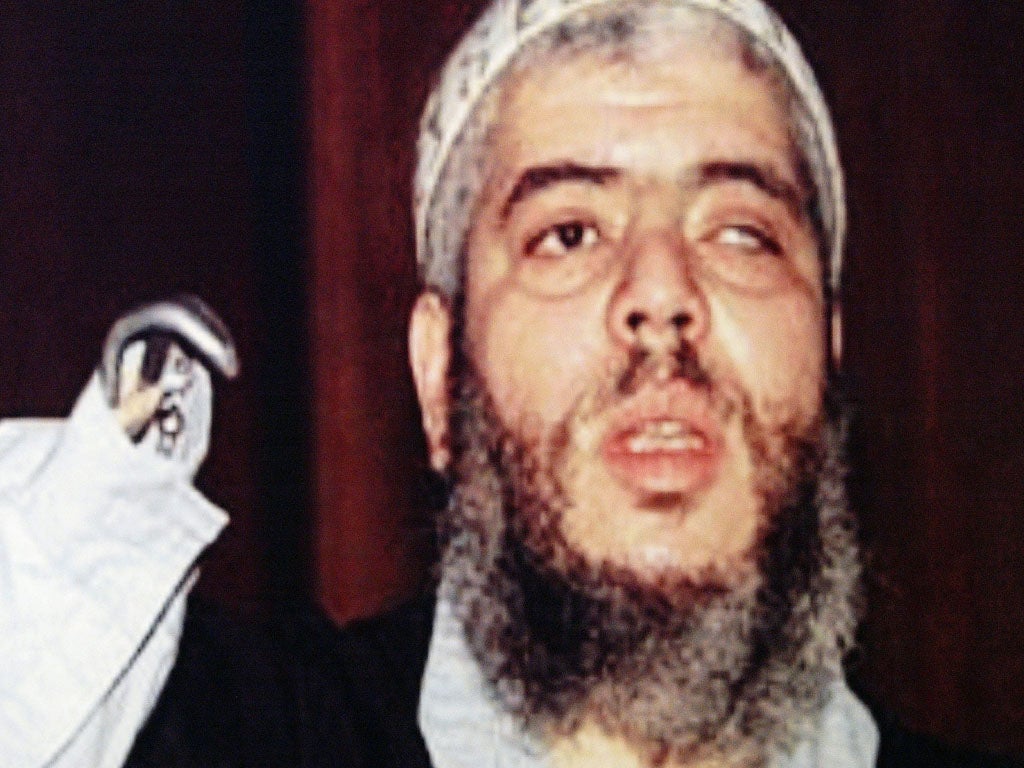Living in the shadow of a US 'super max' prison
Abu Hamza's extradition to the US has raised concerns for others in a similar situation. By Terri Judd

When it was announced that the radical Muslim cleric Abu Hamza had finally lost his battle against extradition, there was no public outcry. But it is feared that Monday's decision may have hidden consequences for British citizens who have found themselves waging a very public battle against the controversial US-UK extradition treaty.
As a panel of European Court of Human of Rights judges threw out an appeal by the terror suspects Abu Hamza, Babar Ahmad, Seyla Talha Ahsan, Adel Abdul Bary and Khalid al-Fawwaz, commentators said the ruling amounted to the first green light for American top security prisons and for European governments to approve requests for high-risk suspects.
Keith Vaz, chairman of the Commons Home Affairs Select Committee, welcomed the final resolution of Abu Hamza's "clear-cut" case, but warned there were more complicated issues at stake for others awaiting extradition to the US.
"There remain concerns about the Babar Ahmad case, and this must not be used as a green light for the Home Secretary to agree to the extradition of Gary McKinnon or Richard O'Dwyer," he said.
Supporters of Babar Ahmad and Seyla Talha Ahsan, neither of whom have been charged with an offence in the UK, insist they should be tried in this country. The pair were allegedly involved in a group of websites called Azzam.com, which are said to have played a key role in inciting young Muslims in the West to commit acts of terrorism.
Mr Ahsan's brother Hamja reacted to the judgment with horror, pointing out that his sibling has Asperger's syndrome, like Gary McKinnon. "The last six years have been a terrifying ordeal for the whole family. This judgment is disturbing. It gives a green light to the most abusive prisons in the US, the type that do not exist in the UK," he said yesterday.
The Strasbourg-based court ruled on 10 April that "detention conditions and length of sentences of five alleged terrorists would not amount to ill-treatment if they were extradited to the USA." The unanimous ruling said there would be no violation of Article 3 of the Convention on Human Rights – the prohibition of inhuman and degrading treatment – as a result of detention conditions they might face at ADX Florence "supermax" prison in Colorado, where inmates are confined to cells most of the time.
Mr Ahmad's family urged Theresa May, the Home Secretary, to halt the extradition until a decision was made on a potential private prosecution in the UK.
The US-UK extradition treaty, which came into force in January 2004, has been a subject of controversy with many claiming it is one-sided because it allows the US to extradite British citizens for offences committed in the UK, with no reciprocal right.
Mr Ahmad and Mr Ahsan's supporters – 149,000 of whom have signed a petition to have them tried in Britain – insist their websites were run in London and that any prosecution should be UK-based. The US is seeking extradition on the grounds that the website host company was based in Connecticut.
Karl Watkin, a businessman, has even sought consent from the Director of Public Prosecutions to bring a private prosecution against the pair, rather than "outsource the country's criminal justice system to the US". Yesterday the Crown Prosecution Service said the matter was still being considered and the Home Office said it was working to ensure extradition as quickly as possible.
"The principle is simple – if you are British, and alleged to have done something criminal in this country, then you get prosecuted in this country," Mr Watkin said.
Yesterday's decision may also have wider implications for others fighting extradition to the US. Gary McKinnon's mother Janis Sharp said it highlighted again the unfairness of the system: "Why do we not have the same rights as American citizens, who can't be extradited if the crime was committed on US soil?"
In April, a Freedom of Information request revealed that no US citizens had been extradited from the US to the UK under this treaty for crimes committed in the US.
Mr McKinnon, 46, is wanted by the US for hacking into military computers. He is awaiting Mrs May's decision on his case next month. His mother insisted the US extradition treaty should not apply to him, as his alleged crimes were committed before it came into force. Ms Sharp said: "He is unfit for trial and a suicide risk."
Join our commenting forum
Join thought-provoking conversations, follow other Independent readers and see their replies
Comments
Bookmark popover
Removed from bookmarks